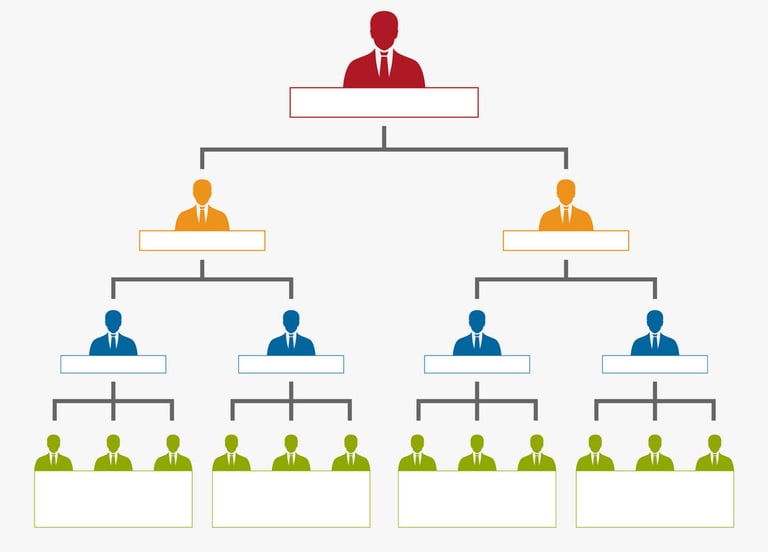

Many web sites talk about three levels of management: top-level, which is administrative; middle-level which is executory; and low-level, which is supervisory. I have no quibbles with that but there is -something I learned years ago, whose source I do not recall, that I like a little better because it goes beyond management. It said that there are ultimately three levels in a business. In this version, they are: those who do it, those who make sure it gets done, and those who decide what “it” is. Those three things are another way of saying workers, management, and executives. I have shared that with many people over the years who generally nod in agreement. I do not propose the second option is better than the first, just a different perspective.
I have recently modified my position a little bit (which might be the original position that I have been misquoting for years). It is more accurate to say there are ultimately three functions in a business, not levels. The three functions; doing, managing, and defining which correlate well to worker, manager, and executive. However if the correlation between the three functions and the three levels is too strong or you company adheres to them strictly, you should consider loosening it up a bit to the benefit of the employees and the company. Below are some thoughts for each level and how they should apply the functions to their position.
Workers know it is their job to get things done. However, they also need to take responsibility for making sure what needs to be done, gets done. “Not my job” may be true on paper, but too much “not my job” thinking may result in a “not any job” reality. Conversely, if they properly ignore “not my job” mentality but are confronted with a “not your job” response from the managers and definers, it may be appropriate for them to apply a “not my job” mentality from a “no longer my company” perspective.
On the other end of the spectrum, executives need to be open to the input of the doers and managers. They are the ones closest to some issues and can have valuable insights to provide. Definers may learn that a “not their job” philosophy may turn into “not my employee” situation. Additionally, if practical, they should try their hand at a little bit managing and doing once in a while. Actual managing and, especially, doing may be impossible, but get as close to it as possible. This is taking the “management by walking around” philosophy and turning it into the “walk a mile in my shoes” philosophy. The benefits will be both better understanding of the work and increased mutual respect among the three functions.
Managers have a tough position. They are a corporate middle child. Often, they are the conduit between the doers and the definers. Maybe just as often, they must endure malice from both above and below. As the one in the middle, not surprisingly, the advice given to the doers and the definers applies to them. Accept the input of the doers and demand acceptance of your output to the definers.
The bigger the company, the more aligned the functions become to their traditional levels. It is especially difficult for the doers to do much defining and vice versa. While the managers still do a little of both, it is not as much as at a smaller company. I will leave additional thoughts on the large company phenomenon to another post (maybe) or to other people (any MBA students reading this?). In summary, each job at a company contains at least potential to work in all three functions. The more the functions are shared, the better off the company, and employees, will be. Why? Because in extreme cases, too much of both “not my job” and “not your job” behavior can result in “not enough profits” or “no more company”.
Afterword
Usually, after describing the worker, manager, executive relationship above, I follow up with the observation that I like the doing and defining but am not too keen on the managing. Actually, managing isn’t that disagreeable, but the amount done in a traditional management position is too much for my liking. I guess that is a big part of why for the last 23 years and in the foreseeable future, I have worked at small companies or as a sole proprietor. It gives me the best opportunity to play in all three areas.

